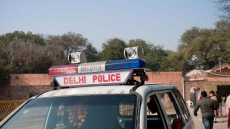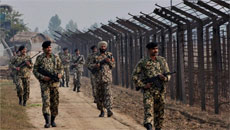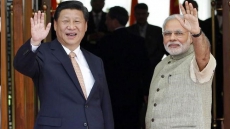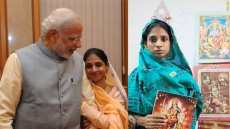A 77-year-old former soldier from China, who entered India during the 1962 Sino-India war after allegedly losing his way and later settled in Madhya Pradesh, is longing to go back to his native land and reunite with his siblings.
Septuagenarian Wang Qi, who lives with his wife and children in Tirodi area of maoist-infested Balaghat district, has been harbouring a desire to see his relatives since the last five decades but his wish hasn't been fulfilled for want of a permit from the Indian government and other procedural roadblocks.
Mr Wang who has grown frail over the years might now face more hardships in visiting his homeland given the prevailing tension in the Indo-China relations but he is still hopeful.
His younger son Vishnu Wang, 35, told that his father had joined the Chinese army in 1960 and he entered India from the eastern frontiers after losing his way in pitch darkness one night.
He landed in Assam where he was caught by Indian Red Cross Society and handed over to Indian Army on January 1, 1963.
"My father spent six years in different prisons in Assam, Ajmer, Delhi and the Punjab and Haryana High Court finally released him in March 1969," he said.

"The Indian government had promised to the court that it would rehabilitate my father. He was taken to Delhi, Bhopal, Jabalpur and then finally handed over to Balaghat police," he said.
After coming to Balaghat, Mr Wang, in order to eke out a living, started working as a watchman with a mill where his colleagues started calling him by name Raj Bahadur apparently due to his Nepali features, Vishnu said.
But little did he know that the enemy nation against whom he had waged a war would become his home, where he would rear a family. Mr Wang married his wife Sushila in 1975 but his desire to live a comfortable life was short-lived.
"Soon after my father married my mother, the Indian government stopped his monthly pension of Rs. 100," Vishnu Wang, who works as an accountant for a small business unit, said.
"My father faced a lot of hardships, wanting to go to China. He tried very hard and even entered into correspondence with the then prime ministers but in vain," he said.



